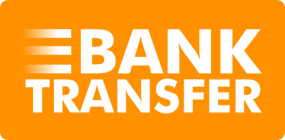USA
Some jurisdictions prohibit citizens from participating in such activities as was the case in most of the USA until recently. Only punters residing in the states of Nevada, Oregon, Delaware, and Montana were allowed to participate in some forms of sports betting because of the Professional and Amateur Sports Protection Act (PASPA) that passed in 1992.
The enactment of this piece of legislation resulted in an almost nationwide ban of online sports betting but fortunately, the Act was overturned by a decision of the Supreme Court in May 2018. This favorable ruling of the Court paved the way for individual states to pass their own legislation regarding the legality of online sports betting. Delaware has already legalized fully online sports betting. New Jersey is also among the states that legalized online sports betting, along with Pennsylvania, West Virginia, Indiana, Michigan, Iowa, New Hampshire.
In 2020, Tennessee and Colorado are also expected to legalize virtual sports betting and join the rest of the states which have allowed their citizens to legally place online bets on their favorite sporting events. More states are expected to follow suit, legalizing and regulating this popular form of gambling within their borders. (Visit the USA sites)
UK
The United Kingdom is one of the best-regulated online gambling markets in the world. Betting on sporting events’ outcomes from the convenience of your home is fully legal in this jurisdiction and all online sportsbooks operating in the country are licensed and strictly regulated by the local UK Gambling Commission (UKGC) under the provisions of the Gambling (Licensing and Advertising) Act of 2014.
After the enactment of this favorable legislation, many local and offshore betting operators recognized the enormous potential of the UK market and penetrated it by applying for UKGC licenses. This gave local punters an incredibly broad choice of legitimate online sportsbooks. Enforcing proper regulations certainly makes sense considering how widespread this form of gambling is among UK citizens. The online sports betting market in the country has been growing at a steady pace after the introduction of the regulations.
As of 2001, punters from the UK are no longer expected to pay a levy when betting on their favorite sports. Instead, a tax was imposed on the sportsbooks operating from within the country which caused many local betting companies to transfer their operations offshore in an attempt to escape taxation.
Local regulatory authorities solved this issue with the introduction of the so-called point-of-consumption tax, demanding a 15% slice from the profits all licensed bookmakers earned when servicing UK punters, regardless of the physical location of the operators. Of course, bettors are still “taxed” in a way, not by authorities but by the bookies themselves who secure their profits by offering customers reduced odds and larger margins. (Visit the UK sites)
Australia
The legal situation in regard to online betting in Australia is a bit daunting. After the enforcement of the Interactive Gambling Amendment Bill of 2016, online sports betting remained legal but some of the amendments in the legislation outlawed specific types of wagering.
Web-based sportsbooks were in effect prohibited from accepting bets on the in-play markets (bets on events in progress) from Australian punters. This pertains to both locally licensed and offshore gambling operators. For one reason or another, wagers made before a given sporting event have started to not count as a form of “interactive” gambling according to Australian authorities and therefore, are allowed.
That being said, many foreign-based sports betting platforms fail to comply with these restrictions and would continue to accept wagers on their in-play markets from Australian customers. This may be attributed to ignorance regarding the new regulations but many offshore operators simply choose to ignore the changes because the Australian authorities do not prosecute them for not complying. (Visit the Australian sites)
Canada
Canadian punters can have their peace of mind knowing that betting on sports online is legal in their jurisdiction but there are restrictions that need to be complied with. The complexity here stems from the fact that each Canadian province has its particular laws and requirements in this regard. A license by the respective province needs to be issued in order for a sportsbook to operate legally on its territory.
What further contributes to the confusion is the distinction between what forms of sports betting are allowed and what is forbidden. Locally licensed sports betting operators are permitted to offer only parlay aka accumulator bets, where wagers on several events are combined and the punter wins only if all selections in the parlay are successful. This heavily restricts the legal betting options for Canadian punters.
However, since offshore bookmakers licensed outside the country are not blocked, Canadian bettors looking for a greater diversity would often choose to experiment with different wager types by visiting foreign websites. Furthermore, players from this jurisdiction are not harassed by local authorities for participating in offshore sports betting activities. (Visit the Canadian sites)
Austria
Gambling, sports wagering included, is fully legal and regulated in the Republic of Austria. Austrians are particularly keen on betting on the outcomes of European soccer games due to the massive popularity this sport enjoys in the country. Sports and horse wagering are regulated on a state level, with each of the nine Austrian federated provinces (Bundesländer) having each own legislation and regulatory body.
The sports wagering laws in the Bundesländer all rest on federal legislation that dates back to the first half of the 20th century. However, each federated province has amended its betting legislation in line with Austria’s updated anti-money laundering policies.
Both landbased and remote forms of legal betting are available to Austrian punters. The legal definition of sports wagering, the licenses’ duration, and the allowed product scope vary between federated states. Some states only allow for traditional wagering on the outcomes of sporting events. Others, like Tyrol and Vorarlberg, also permit social betting, i.e. on presidential elections or other cultural and political events.
ESports are not explicitly regulated on Austrian soil but all nine states regulate pool betting. In-play wagering is disallowed in most provinces although some permit it with certain restrictions. In Vienna, punters can place in-play bets only on the partial or end outcomes of live events.
The country has an open licensing regime, with no restrictions on the maximum permits for bookmakers. This approach helps create an open and well-developed market. Licensed landbased and remote betting operators have to pay a 2% tax on the wagers they collect.
Some provinces require online licensees to have a physical presence (servers etc.) within their territory. State authorities are not in the habit of blocking local punters from accessing unauthorized online sportsbooks. The legal sports betting age in most Austrian Bundesländer is 18 years old.(Visit the Аustrian sites)
South Africa
There is no denying South Africans are keen on sports, even more so considering some of the world’s top-performing athletes hail from the country. This love for sports extends to regularly punting on local and international competitions. South Africans can do it legally since the country regulates both landbased and online sports betting.
The regulatory landscape changed after the enforcement of the 1996 National Gambling Act. The legislation paved the way for regulated sports and horse wagering, leading to the creation of the National Gambling Board of South Africa (NGB). The country regulates these activities both on a federal and provincial level.
The NGB has a central role in aligning the regulatory standards across all nine South African provinces. A main priority of the regulator is ensuring the protection of local punters and preserving the sports’ integrity in South Africa.
The NGB also strives to curb the proliferation of illegal betting activities and prevent problem gambling by thoroughly reviewing all promotional materials for the sports betting and racing industries.
The bookmakers looking to service local punters must obtain licenses from the regulators in one of the nine South African provinces. The Western Cape Gambling and Racing Board leads the race in terms of issued permits, with over forty operating bookmaking licensees.
Sportingbet is one of the leading licensed providers of betting services in the country, with more than 100,000 active punters since its 2009 launch. South Africans who engage in unauthorized betting theoretically may suffer penalties, although the local authorities tend to prosecute operators rather than individual bettors.
Ever since the gambling industry’s liberalization back in the mid-1990s, sports betting in South Africa has witnessed unprecedented growth. The industry continues to maintain this positive trend, reporting a 20% average growth between 2010 and 2019.(Visit the South African sites)
Norway
In Norway, the state has a monopoly over the entire gambling sector whereby two state-owned companies have exclusive rights over the provision of sports betting services. Operators cannot distribute or market their products to Norwegians without permits from Norway’s Gaming Authority.
The market is closed to foreign competition – no commercial operators have received licenses so far. The Norwegian regulator can only grant permits to non-profit organizations, which leaves local punters with limited legal betting options. Two laws are responsible for the current monopoly on sports betting, one of them being the Gaming Act of 1992.
It granted exclusive rights to Norsk Tipping to provide lotteries, instant-win games, and soccer betting. The 1927 Act on Tote Betting enabled Norsk Rikstoto (the Norwegian National Tote) to become the exclusive pari-mutuel betting provider for equestrian sports.
These restrictions hardly prevented local punters from taking their action to offshore sportsbooks that target Norwegian customers. Sports betting with unauthorized websites was so rampant that it led to the enforcement of the 2010 Regulation on Payment Transfers. This legislation effectively prohibits local banks and financial institutions from processing payments to offshore betting sites.
Nonetheless, these measures have done little to restrict unauthorized betting activities in Norway. Many offshore sports betting operators have managed to dodge the restrictions by using third-party payment processors. Such sportsbooks cater to local punters by supporting NOK and offering their services in the Norwegian language. (Visit the Norwegian sites)
Belgium
Gambling is embedded in Belgians’ culture. The Federal Act of 7 May 1999, or the Gaming Act, is the country’s main piece of legislation that governs the provision of gambling services throughout the country except for the lotteries. This means that sports betting also falls under it. The country’s gambling regulator, the Belgium Gaming Commission, was established under the Gaming Act and currently, it still performs its regulatory duties. Sports betting is also within its scope of powers.
In 2011, lawmakers adopted some amendments to the law to include online gambling and sports betting. Belgium offers 10 different licenses, depending on the products a given operator wants to offer. The relevant license for offering sports betting services is the so-called F-style license. F1 licenses allow the organization of up to 35 bets, while to accept wagers, operators should acquire an F2 license. According to the country’s legal framework, to be able to accept online sports bets, operators need to acquire an F1+ license.
The F-style licenses are interrelated and an operator needs all of them to legally offer online sports betting services to players from Belgium. Acquiring a sports betting license in Belgium is not an easy task as the applicants need to meet some strict requirements. F-style licenses are valid for 9 years. A curious fact is that the most popular sport on which Belgians place bets is soccer. However, placing bets on sports such as tennis, boxing, horse racing, cycling, and others is also an option. (Visit the Belgian sites)
Finland
An undeniable fact is that Finns are fond of all forms of gambling, including sports betting. The provision of gambling activities throughout the country is subject to a state monopoly. It is held by three entities, each responsible for a different gambling branch. When it comes to sports betting, it is the Veikkaus Oy that is tasked with overseeing the industry. It is also responsible for regulating the national lottery and instant win games.
The other two entities are RAY and Fintoto Oy. These regulate land-based casinos and pari-mutuel horse racing, accordingly. There is also a fourth entity called PAF and it controls the provision of all kinds of gambling activities in the Aland Province. As for now, PAF and RAY are the two entities that are allowed by the Finnish government to legally run gambling sites. Sports betting enthusiasts can legally place bets on their favorite sporting event only if they are 18 years old or more.
As it turns out, there is a major loophole in the Finnish regulatory framework as the country neither blocks offshore operators nor prevents Finns from placing bets at offshore gambling sites. The European Union and Finland often lock horns over the state monopoly on gambling.
In December 2020, the European Gaming and Betting Association (EGBA) advised Finnish lawmakers to put an end to the monopoly, being the only European country that still maintains such a regime. Experts believe that the country’s lawmakers will amend their gambling laws in the near future. Veikkaus has been recently criticized for its marketing policies. (Visit the Finnish sites)
Germany
It is hard to say whether online gambling in Germany is legal as the country has adopted a perplexing stance on the matter. What adds up to the confusion is that the industry is regulated on a national level but the different states can regulate gambling the way they deem it wise. Sports betting is viewed as a form of gambling.
In 2008, the Interstate Treaty on Gambling (ISTG) came into effect to ban all forms of gambling except for sports betting and horse racing run by state-owned companies. Initially, all states agreed to adopt this piece of legislation. This unanimity lasted only until 2012, when Schleswig-Holstein decided to regulate the industry and license several operators. A few years later, the country was scrutinized by the EU for its strict gambling regulations which gave rise to some changes.
Germany’s gambling market has always been a rough diamond that should be polished to deploy its full potential. Unfortunately, the authorities kept their eyes closed for the gambling industry’s great potential for years. In 2020, news agencies reported that the lawmakers are to legalize online casinos and online poker.
Under new regulation that is to come into force on 1st July 2021, an unlimited number of sports betting providers will be able to enter the German market. Currently, it is perfectly legal to place a sports bet at an offshore casino or sports book and subsequent winnings are subject to a 5% fee. (Visit the German sites)
Italy
Italy is a beautiful country that takes pride in its ancient history. Gambling throughout the country can be traced back to the Roman Empire, when people were making bets on Gladiator fights. Nowadays, gambling is among the Italian’s favorite leisure activities. The oldest casino across Europe, Ridotto, opened doors in Italy in 1638.
Over the years, Italian authorities made efforts to reduce the exposure of its residents to gambling activities. The pivotal year for the online gambling industry was 2007 when Italian lawmakers introduced the so-called Decree on Liberalization. Fast-forward to today, the country differentiates the games based on luck from the games that require some special skills. Sports betting is viewed as a gambling activity based on luck. Hence, Italians can legally bet on various sporting events.
Until 2010, all foreign operators were blocked. Only the Italian National Olympic Committee (CONI) and the National Horse Breeders Enhancement Society (UNIRE) were allowed to offer online and offline sports betting services. This means that even though sports betting was regulated, it was a state monopoly.
In 2009, the European Commission scolded Italian legislators for the strict gambling rules. As a result, in 2010, the country’s gambling regulator, Amministrazione Autonoma dei Monopoli di Stato (AAMS), was given the green light to issue licenses to foreign sports betting providers as long as they meet the requirements. (Visit the Italian sites)
New Zealand
Much like its neighbors, the Australians, Kiwis love gambling. The main piece of legislation that currently governs the industry is the Gambling Act 2003. Since its implementation, the law was amended twice. Currently, it states that only individuals above 18 years old are allowed to place sports bets, play lottery games, or buy scratch cards. The minimum age to gamble at a casino is 20 years.
The main regulatory body overseeing sports betting and gambling activities is the Gambling Commission. It, on the other hand, falls under the authority of the Department of Internal Affairs. The Gambling Commission does not have the power to change the laws but rather perform its duties within the established legal framework.
New Zealand’s gambling law outlines four major classes of gambling activities that are legal. If a given gambling form does not belong to any of them, it is against the law. Kiwis can legally place bets on sporting events online as long as the operator is based outside New Zealand. Operators are strictly forbidden to promote their gambling services within New Zealand. The government slaps wrongdoers with hefty fines of up to $10,000.
Punters should be careful when selecting a preferred online sports betting provider as their interests are protected according to the legal framework established by the specific licensing country. Even though Kiwis can choose from a variety of odds, they tend to prefer the decimal format as determining their winning potential is a child’s play. (Visit the New Zealand sites)
Scotland
Scotland is a constitutional part of the United Kingdom that occupies a third of Great Britain. The regulation of its gambling industry is in the hands of the UK Gambling Commission that was founded in 2007. The law that establishes the legal climate for the provision of gambling activities in Scotland is the Gambling Act 2005. Over the years, Scotland went through a thorny path when it comes to gambling regulation.
Nowadays, all forms of online and offline gambling activities are regulated throughout the country. This means that punters from Scotland are free to place the type of bet they wish to on their favorite sports team. Under the gambling law, sports bettors should be at least 18 years old to legally participate in gambling activities, including sports betting. Scottish sports betting shops tend to present the odds either in decimal or fractional format. The fractional odds enjoy greater popularity among Scottish people.
The legal framework throughout Scotland aims at protecting punters’ best interests and stamp out gambling-related problems. Winnings from sports betting activities are tax-free. Operators who would like to legally offer sports betting services in Scotland are required to have a license issued by the UK Gambling Commission. Obtaining such a license is no picnic as the gambling authority maintains the highest standards on the market. (Visit the Scottish sites)
Sweden
For years, Swedish authorities aimed at introducing a state monopoly on gambling activities in a bid to limit illegal gambling. Svenska Spel was the only state-owned entity that was allowed to offer gambling services within Sweden without infringing the law. The two major laws that governed the gambling industry up until recently were the 1994 Lotteries Act and the 1999 Casinos Act.
In 2002, the Swedish government introduced amendments to the already existing laws, allowing Svenska Spel to offer online gambling services. Hence, Swedish punters had a very limited choice in terms of virtual sportsbooks and casinos. In 2005, the popular online sportsbook Ladbrokes tried to set its footprint on the lucrative Swedish market, but its attempts failed.
The gambling landscape throughout the country dramatically changed in 2018, when the country introduced amendments to the Gambling Act. The new legislation opened the possibility for foreign operators to enter the Swedish market. Interested operators were required to obtain a license from the county’s gambling regulator Spelinspektionen.
Under the country’s gambling laws, licensed sports betting and casino operators should offer no more than one Welcome Bonus to Swedes. What is more, punters under the legal gambling age of 18 years old are strictly prohibited from joining a sportsbook. The number of payment solutions is also very limited. In an attempt to minimize gambling-related problems, all Swedish bettors are required to set limits on their daily deposits. (Visit the Swedish sites)
The Netherlands
Sports wagering is among the most widespread forms of gambling in the Netherlands. Until recently, the sector was subject to a state monopoly – the only two entities that could offer betting in landbased or online form were the state-owned Dutch State Lottery (Nederlandse Loterij) and Sportech Racing BV. Unauthorized bookmakers who explicitly targeted Dutch residents suffered heavy financial penalties.
The Dutch sports betting industry finally opened to private and foreign competition with the approval of the Remote Gambling Act (Wet Kansspelen op afstand) in 2019. The passage of this bill is a turning point in the history of the Dutch gambling industry. It paved the way for legal remote betting in the country and opened the market to foreign bookmakers.
The Remote Gambling Act enters into force at the beginning of March 2021, with the first locally authorized betting sites commencing operations at the beginning of September 2021. The Act sets the requirements for advertising and problem gambling prevention, creating a safer betting environment for Dutch punters.
Apart from traditional sports betting, prospective licensees can accept wagers on eSports, fantasy, and virtual sports. Authorized operators can also offer in-play betting as well as horse and harness racing. Kansspelautoriteit (the Dutch Gaming Authority) issues the remote licenses and supervises approved licensees.
Applicants will not be required to partner with local brick-and-mortar operators to receive permits. They also have to comply with a 32-month cooling-off period before they submit their applications. This means an operator must not have targeted Dutch punters without authorization within this timeframe, or else their application will be rejected. (Visit the Dutch sites)
Denmark
Sports wagering is legal on the territory of Denmark but only on condition the bookmakers hold valid licenses that enable them to service Danish punters legally. Where remote gambling is concerned, the Danish Gambling Authority (DGA) issues two types of permits – betting licenses (for sports wagering) and online casino licenses (for the provision of table games and slots).
The Danish Gambling Authority (Spillemyndigheden) regulates the industry under the provisions of the Danish Gambling Act. A license issued by the DGA covers remote and brick-and-mortar sports betting services and has a validity of up to five years.
Remote applicants also have the option to apply for combined permits that would allow them to offer both wagering on sports and online casino games. A full list of all approved remote and landbased bookmakers is available at the DGA’s official website. Punters from Denmark have legal access to the services of leading sportsbooks like Betfair, 888, Unibet, and Mr Green.
All licensed sportsbooks in Denmark must pay annual license fees and duties based on their gross gaming revenue (GGR). Operators based outside Denmark or the EU/EEA must appoint representatives with permanent domicile in the country. Said representatives must first obtain the approval of the DGA.
Licensed sportsbooks can only provide betting to punters who are at least 18 years of age. Respectively, the websites must be available in Danish and support the DKK as a currency. Residents who punt at unauthorized betting sites are not held liable under Danish law. (Visit the Dannish sites)
Ireland
Ireland has been regulating sports wagering since the early 1930s under the provisions of the 1931 Betting Act. This outdated piece of legislation was amended by the Betting (Amendment) Act of 2015, which paved the way for the licensing of remote sportsbooks and betting intermediaries.
More changes followed after the approval of the Gaming and Lotteries (Amendment) Act of 2019 that came into force in December 2020. Pari-mutuel wagering falls under the scope of the 1929 Totalizator Act and its subsequent amendments. Only two tote operators have received totalizator permits so far – Horse Racing Ireland (the permit expires in April 2021) and the Irish Greyhound Board.
Operators looking to penetrate the Irish market legally must obtain valid licenses from the local regulators, the Revenue Commissioners (colloquially known as the Revenue). There are no restrictions on the number of remote betting licenses at the moment. However, the Revenue may impose one such cap if it deems fit.
Remote sportsbooks can only accept punts from Irish bettors who are of legal gambling age (18 years old in the country). In addition to licensing fees, approved online bookmakers are subject to a 2% wagering duty. Charges of 25% apply to the commissions of betting intermediaries. The validity of the permits is typically two years.
With that said, it is a common practice for offshore-licensed sportsbooks to provide bookmaking services to Irish residents. Such operators have usually obtained their permits in jurisdictions with contemporary regulatory frameworks like Malta or Gibraltar. (Visit the Irish sites)
Portugal
Portugal is a country with a long gambling history and it is the country with some of the oldest brick-and-mortar betting facilities in Europe. Throughout the years, Portugal has legalized various forms of gambling, allowing its residents to legally place bets on casino games, sports events, lottery, and bingo. Both online and offline betting is possible in Portugal, making it a great place to live if you are a fan of recreational sports betting.
Gambling in Portugal is regulated thanks to two primary pieces of legislation, i.e. Decree-Law No. 422 (The Gambling Act 1989) and Decree-Law No. 66 of 2015. Betting on horse races was legalized with the passing of the Decree-Law No.69 of 2015. Meanwhile, football pools aslo known as Totogolo were decriminalized in 1998 under the Decree-Law No. 68. The two regulatory bodies in Portugal are the Gambling Regulation and Inspection Service (SRIJ) and the Lisbon Holy House of Mercy (SCML). The SCML regulates the National Lottery, land-based fixed-odds sports betting, and mutual horse race betting. Online sportsbooks are allowed to offer odds on sports events only if they have obtained licenses by the RJO (Online Legal Gambling and Betting Regime).
Although different forms of gambling have been decriminalized in the past, the Portugal government still takes steps towards improving the laws that regulate this industry. The latest amendment to the law was introduced in 2020, eliminating the so-called progressive tax rate. New changes to the legal framework of Portugal are expected either in 2022 or perhaps even sooner. (Visit the Portuguese sites)
Spain
Land-based gambling enjoys great popularity in the country of Spain but online gambling has also started to catch up in the last few years. It is predicted that thanks to the growing interest in online wagering, the overall gambling industry in Spain is expected to continue developing in the upcoming years and reach even a larger scale.
Spain has legalized both the online and offline form of gambling, allowing players to legally enjoy betting on casino games, sports events, horse races, bingo, poker, and lottery. While the state laws regulate online gambling, the regional authorities in Spain are responsible for the regulations of regional land-based gambling.
The Royal Decree, also known as Law 16/1977, was the piece of legislation that decriminalized sports betting, as well as other forms of land-based gambling. The same law also defined the taxation pattern for licensed gambling operators, with the tax rates ranging between 15% and 50%.
With the rise of interactive gambling, a new law was passed in 2011. It legalized online gambling and marked the establishment of Dirección General de Ordenación del Juego (DGOJ), which is the regulatory body that oversees the activity of online gambling operators in Spain. DGOJ is also the jurisdiction that issues licenses to operators who wish to offer online sports betting services to Spanish players. Bettors are required to declare their profits from gambling-related activities in their tax returns. Meanwhile, online sportsbook operators are required to pay a Tax on Gambling Activities, which amounts to 20% of their gross gaming revenue. (Visit the Spanish sites)
Hungary
It is safe to say that Hungarians live and breathe gambling, and sports betting in particular. Playing casino games and betting on sports started to gain even more traction after the legislative changes that were introduced back in 2013. Before that time, the choice of online platforms Hungarians had was only limited to the state-run site Szerencsejáték Zrt, while the government took steps to block and blacklist overseas operators that attempted to penetrate the gambling market.
Things changed for the better in the country, as lawmakers had no other choice but to ease the restrictions overseas operators faced while they are looking to accommodate Hungarians. The restrictions were lifted as a result of the growing pressure from the EU, and this move was much-awaited by operators. After overseas operators were authorized to compete for the Hungarian gambling industry, a number of established and well-known brands eyed the untapped market.
Presently, offline betting on sports is monopolized by the country, while overseas operators are given leave to provide their services in Hungary. The though rules of engagement and steep fees are what urge them against competing on the market. (Visit the Hungarian sites)
Czech Republic
Sports betting and other gambling activities in the Czech Republic are completely legal. Their constitutionalizing began back in 1990 and within one year the first two operators legally entered the Czech market – Fortuna and Tipsport. In the next 19 years, only brick-and-mortar premises were allowed. In 2009 online betting became part of legitimate gambling activities and the first online sportsbooks were created.
What is characteristic of the Czech sports betting market is that punters can bet with locally licensed bookies as well as with big international brands headquartered outside the country. There are no taxes on the bettors’ winnings but local gambling operators must pay significant taxes to the state, which indirectly limits the bonuses and prizes they can provide.
The services offered by major sports betting brands in the Czech Republic are in no way different from the ones in other markets. Local punters can enjoy all the incentives possible – generous welcome bonuses, free bets, reload and rebate promotions, and lucrative cash prizes.
As for the most popular sports Czech punters bet on, they are undoubtedly ice hockey and soccer. Bettors have at their disposal numerous betting markets covering many domestic leagues and all major international tournaments. The local legislation puts no restrictions on the sports you can wager and also on the bet types, thus enabling punters to have a complete and flawless betting experience. (Visit the Czech sites)
France
Over the years, France’s online sports betting scene as a whole has undergone many notable changes. In the early two thousands, the only operators legally allowed to offer gambling services online were the FDJ and PMU. Thankfully, the laws were somewhat alleviated in 2009, and one year later, ARJEL was established. ARJEL was, at the time, responsible for issuing licenses to foreign operators.
Apart from spread betting, nowadays, most forms of online sports betting are perfectly legal in France. However, the country’s current regulatory body, the ANJ, is quite strict when it comes to the conditions that need to be met for a bookmaker to be eligible for a license. While this has, so far, heavily limited the number of bookmakers that are legally allowed to offer sports betting to French punters, France is one of the safest countries out there for gambling aficionados.
All bookmakers who wish to operate within France must first obtain a license by the ANJ, the country’s aforementioned regulatory body. Furthermore, there are separate licenses for general sports betting versus horse racing. If an operator is looking to offer both, they will need to acquire two separate licenses that need to be renewed every 5 years. Fortunately, there is no imposed limit on how many licenses the ANJ can issue currently.
As for the requirements pertaining to the punters themselves, any French resident is legally permitted to partake in sports betting, provided that they are at least 18 years old, and that they are not listed as an individual prohibited from gambling. (Visit the French sites)
Greece
Sports wagering is fully legal in Greece in both landbased and online form. Greek punters are now able to enjoy a decent variety of locally licensed online sportsbooks thanks to the recent liberalization and re-regulation of the country’s gambling market.
The industry is governed by two primary pieces of legislation, the first one being Law 4002/2011 which regulates gambling in general. Law 4635/2019 amended some of its provisions, effectively putting an end to the monopoly of the state-owned OPAP. In turn, this enabled private foreign companies to finally receive Greek licenses.
Greece has adopted an open licensing process, whereby interested sports betting operators can apply for Type A permits from the local regulator, the Hellenic Gaming Commission. The permits for sports wagering have a duration of seven years and cost €3 million per operator, with the option for renewal one year before expiration.
Greece has some of the highest gambling taxes in Europe, with licensed operators contributing 35% of the gross revenue. Greek punters also pay withholding taxes on their sports betting profits and the rates reach 20% for winnings exceeding €500.
The Greek regulatory authority maintains a whitelist of all approved betting firms as well as a blacklist of unauthorized operators with blocked domains. Both are regularly updated and readily available on the regulator’s official website. Some of the biggest brand names in the sports betting universe have already gained the approval of the HGC, including prominent names like Betsson, Unibet, and bet365. (Visit the Greek sites)
Brazil
Sports betting and gambling in Brazil have been considered illegal since the adoption of a decree signed by President Euricio Gaspar Dutra in 1946. The only exceptions were related to state-governed lotteries, wagers on horse racing in authorized tracks, and a brief open period for slot machines.
Over the years, there have been many debates in the National Congress of Brazil regarding the legalization of sports betting and different opinions have been discussed, taking into consideration the religious, ideological and economic aspects of the topic.
Eventually, Brazil has taken the necessary steps in the legalization of fixed-odds sports betting with the adoption of Law No. 13,756 in December, 2018.
The authority that is in charge of preparing the legal framework for fixed-odds sports betting is the Ministry of Economy, and more precisely the SECAP (the Secretariat for Public Policy Evaluation, Planning, Energy, and Lottery). It has been granted with a four year period to deliver a unified document, containing the legal criteria according to which licensed and regulated sportsbooks are supposed to operate.
There are many offshore sportsbooks accepting Brazil-based punters, but currently there are no Brazilian operators. Consequently, it is of paramount importance for Brazilian punters to be familiar with the specifics of sports betting, as well as the leading global bookmakers, offering competitive odds, lucrative bonuses, and convenient payment solutions. (Visit the Brazilian sites)
Turkey
Turkey is easily a country in which the East meets the West, and its strictly controlled gambling industry goes to show this. The gambling activities residents of the country can freely access are thin on the ground, and only include betting on sports, horse races, and game of chance. These activities are considered regulated gaming and betting, and are exempted from the description of prohibited forms of gaming provided in the law.
Offline gaming was also formerly authorized, but a ban on such activities was introduced back in 1996. Around two decades ago, online gambling also started to pick up steam in Turkey, but lawmakers turned the legality of such activities on its head and introduced a blanket ban. Yet, gaming operators continued to freely service gambling enthusiasts from the country until 2013, when the government went for stricter control over the operations.
Under the new set of rules, fines and imprisonment will be imposed not only to residents of the county who take part in authorized gambling but to operators that offer such services as well. In spite of the fact that the government has taken measures to block overseas operators, there are still betting sites that neglect the ban and accept users from Turkey.
The only forms of gambling residents of Turkey can legally engage in are betting on horse races, given that it is provided by the Jockey Club of Turkey, sports betting, which is offered by the IDDAA, and playing the lottery. (Visit the Turkish sites)
Argentina
Argentina is among the jurisdictions whose legislation regarding sports betting is not the same for the whole country and therefore needs to be carefully researched so that you do not end up in violation of any local regulation. Until recently, only land-based gambling activities were fully legitimate, so the country has a large number of brick-and-mortar casinos and betting shops.Since 2018, online sports betting is legal in the city and the province of Buenos Aires where operators can apply for a license issued by the Provincial Lottery and Casino Institute. The relevant requirements are hard to fulfill so betting operators do not show much interest. While the local legislation says nothing about online sportsbooks managed by foreign brands, it does not explicitly prohibit their activity and logically this is the preferred choice of many Argentine punters.
This is especially favorable for the local bettors since they can benefit from all the features and promotions provided by bookies like bet365, 22Bet, RedBet, and Betway. To fund your account balance, you can use debit & credit cards, bank transfers, Skrill, Neteller, Paysafecard, AstroPay, and other payment methods.
Winnings are not taxable, but keep in mind that the Ministry of Finance imposes a gambling tax of 5% on all online betting transactions. (Visit the Argentinian sites)
Mexico
Mexico’s gambling history is quite rich, with games of chance dating all the way back to the time of the Aztecs. The late 19th and early 20th centuries saw further popularization of the practice thanks to French influence. The Gaming Law introduced in 1947 complicated things and led to a lot of confusion since wagering was declared illegal, but the Ministry of the Interior was put in charge of regulating and authorizing gambling establishments.
Thankfully, Mexico’s sports betting landscape has been growing steadily in the past couple of decades. The 2004 and 2013 amendments to the country’s Gaming Law made the legislation restrictions and rules significantly clearer, and nowadays gambling is regulated and legal.
Mexican online bookmakers can operate within the country provided that they are part of a brick-and-mortar venue that has acquired the necessary permit from the Ministry of the Interior. Furthermore, Mexican netizens are not prohibited from wagering at off-shore online sportsbooks, nor are the websites themselves discouraged from accepting punters from Mexico. This leaves Mexican bettors with a wide variety of online bookies to pick from. (Visit the Mexican sites)
Japan
Japan has a fascinating culture and gambling and sports betting have always been an integral part of it. The East-Asian country has played host to a number of prominent sports championships over the years and its population is keenly interested in various sports.
Presently, under Chapter 23 of the Penal Code in Japan, only certain types of sports are legally approved for sports betting. These include horse racing, powerboat racing, motorcycle racing, and bicycle racing. Furthermore, Japan permits only the pari-mutuel form of betting, whereby bets of certain type are placed in a pool and the final payouts are determined when the pool is closed.
Licenses for operation are granted only to certain state-governed entities. Horse races are operated and managed by the Japan Horse Racing Association. Motorcycle and bicycle races are supervised by the Japan Keirin Autorace Foundation, while motorboat racing is governed by the Nippon Foundation.
Among the favorite sports disciplines of Japan-based punters are baseball, football, tennis, horse racing, and golf. Many more sports are available at the Japan-friendly online sportsbooks, allowing every bettor to find their favorite market. Foreign-based bookmakers provide Japanese bettors with a variety of betting options, including many of their domestic leagues, as well as other major global championships. (Visit the Japanese sites)
Qatar
Being the country with the third-biggest GDP per capita in the whole world, Qatar has the potential to greatly benefit economically from a regulated gambling scene. That said, like many other Islamic countries, Qatar has deemed every form of gambling to be illegal. Naturally, this makes it difficult for people who enjoy sports to place wagers on their favorite teams or players.
The ban on gambling applies to both the offline and online forms of the sector. If you are visiting the country, do not expect to see any brick-and-mortar casinos, kiosks, or any other gambling facilities in Qatar. That said, it is known that there are quite a few illegal betting activities taking place in the country. However, those who offer or participate in such actions risk being caught and penalized in accordance with the sanctions described in the 2004 Penal Code of Qatar.
Even though online betting is illegal in the country, punters in Qatar take advantage of several legal loopholes and tend to place bets on offshore betting sites. Since the government of Qatar is not taking serious actions against foreign sportsbooks, there are quite a few offshore bookies that welcome bettors from Qatar.
While there is a way to make sporting wagers online, if you reside in Qatar, you should be very careful when choosing a sportsbook to join. It is always important to check the reputation of the bookie, the sports it covers and the odds it is offering. Being able to make secure payments via e-wallets, prepaid cards, or cryptocurrencies is also among the advantages Qatari bettors are advised to look for when choosing a website for their sports betting. (Visit the Qatari sites)
Thailand
Thailand is a country with long traditions in sports betting and gambling which, however, are currently almost 100% illegal. Like anything forbidden, interest in these activities is constantly increasing. Local punters have found ways to overcome legal restrictions and enjoy their favorite pastime.
The 1935 Gambling Act is the main document that regulates all forms of sports betting in Thailand. The only gambling activities you can legally perform in the country are the state lottery and betting on horses at certain race tracks.
Although not explicitly mentioned in any legislative document, online sports betting is considered to be against the law. This does not prevent some local bookmakers from launching sportsbooks. It is generally not a good idea to place your bets through them. There is a great chance to be misled regarding the payment of your winnings. What is more, you run the risk of going to jail, being deported, or paying a hefty fine.
Nothing is lost, though. There is a minimal chance that any of the above will happen to you if you choose a betting operator based outside Thailand. In the worst case, your access to the online sportsbook may be blocked, although this does not happen very often. Betting via a licensed international bookie will allow you to benefit from an abundance of betting markets, payment methods, bonuses, and promotions. (Visit the Thai sites)
Vietnam
Vietnam is a country situated in South Asia, with a rich history that dates all the way back to 20,000 years ago. Naturally, wagering activities have always been quite well-liked in Vietnamese society and this is evident by how old certain games of chance are in the country. Bau Cua, a game involving dice, was part of everyday life for many Vietnamese individuals, and wagering on fights between male betta fish is another ancient activity.
Legally, however, things have been tough for gambling enthusiasts in the country. For a long time, the lottery was the only gambling activity that was legally permitted to Vietnamese punters. We are happy to say that things seem to be changing, however, and the government has slowly but steadily been making progress towards regulating the nation’s gambling market.
Although online betting has not been legalized at the time of writing, brick-and-mortar gambling is more accessible nowadays in terms of what is legal. Bettors are allowed to wager on international soccer, horse racing, and greyhound racing events, although there are many conditions that need to be met.
The laws have not stopped Vietnamese punters from wagering online as well, however, and nowadays the practice is widespread among those who use their smartphones to place bets online. Sports such as soccer, mixed martial arts, and eSports are especially popular. (Visit the Vietnamese sites)
Malaysia
Malaysia has hosted several major sports tournaments over the years, including the Commonwealth Games in 1998. Malaysians are avid fans of many sports and sports betting is among their favorite pastimes. However, there are only a few legal and regulated forms of gambling within the country. Currently, these include six privately-operated lotteries, three authorized horse racing tracks, and a single land-based casino, Resorts World Genting.
Taking into consideration that Malaysia is a country of multi-ethnic background, it is important to note that Muslims, making up 61% of the population, are forbidden to participate in any kind of gambling activity. The rest of the ethnic groups are not restrained from taking part in the legal forms of gambling available in the country. Malaysian citizens of non-Islamic background are allowed to gamble when they reach the age of 21.
Malaysia has three major laws in relation to gambling – the Betting Act of 1953, the Common Gaming Houses Act of 1953, and the Shariah law. The Betting Control Unit, operating under the jurisdiction of the Finance Ministry is the legal authority in charge of granting permits to legal betting venues in the country. The betting activities carried out at the three authorized racecourses in Malaysia are supervised by the Pan Malaysian Pools Sdn Bhd.
Malaysia’s residents have the opportunity to sign up for offshore sportsbooks and bet on major sports tournaments from around the world. The sports that are much-favored in the country are football and badminton. (Visit the Malaysian sites)
 $1000 Welcome BonusEnter promocode MYB100 to receive first deposit bonus of 100% up to $1,000. 10x rollover requirements. $50 min deposit. 18+, new customers onlyClaim BonusVisit MyBookie
$1000 Welcome BonusEnter promocode MYB100 to receive first deposit bonus of 100% up to $1,000. 10x rollover requirements. $50 min deposit. 18+, new customers onlyClaim BonusVisit MyBookie $250 Welcome BonusJoin Bovada, make your first deposit and instantly receive a 50% Sports Welcome Bonus up to $250.Claim BonusVisit Bovada
$250 Welcome BonusJoin Bovada, make your first deposit and instantly receive a 50% Sports Welcome Bonus up to $250.Claim BonusVisit Bovada $500 Welcome BonusEnter promocode XB100 to claim first deposit bonus of 100% up to $500 welcome bonus. 7x rollover requirements. $45 min deposit. 18+, new customers onlyClaim BonusVisit XBet
$500 Welcome BonusEnter promocode XB100 to claim first deposit bonus of 100% up to $500 welcome bonus. 7x rollover requirements. $45 min deposit. 18+, new customers onlyClaim BonusVisit XBet $200 Match BonusThe bonus and the deposit need to be rolled over 4x at min. odds of -200 (1.5) before a payout is possible Max. $200 of every bet count towards the rollover.Claim BonusVisit Everygame
$200 Match BonusThe bonus and the deposit need to be rolled over 4x at min. odds of -200 (1.5) before a payout is possible Max. $200 of every bet count towards the rollover.Claim BonusVisit Everygame








 Betting on Football
Betting on Football






























